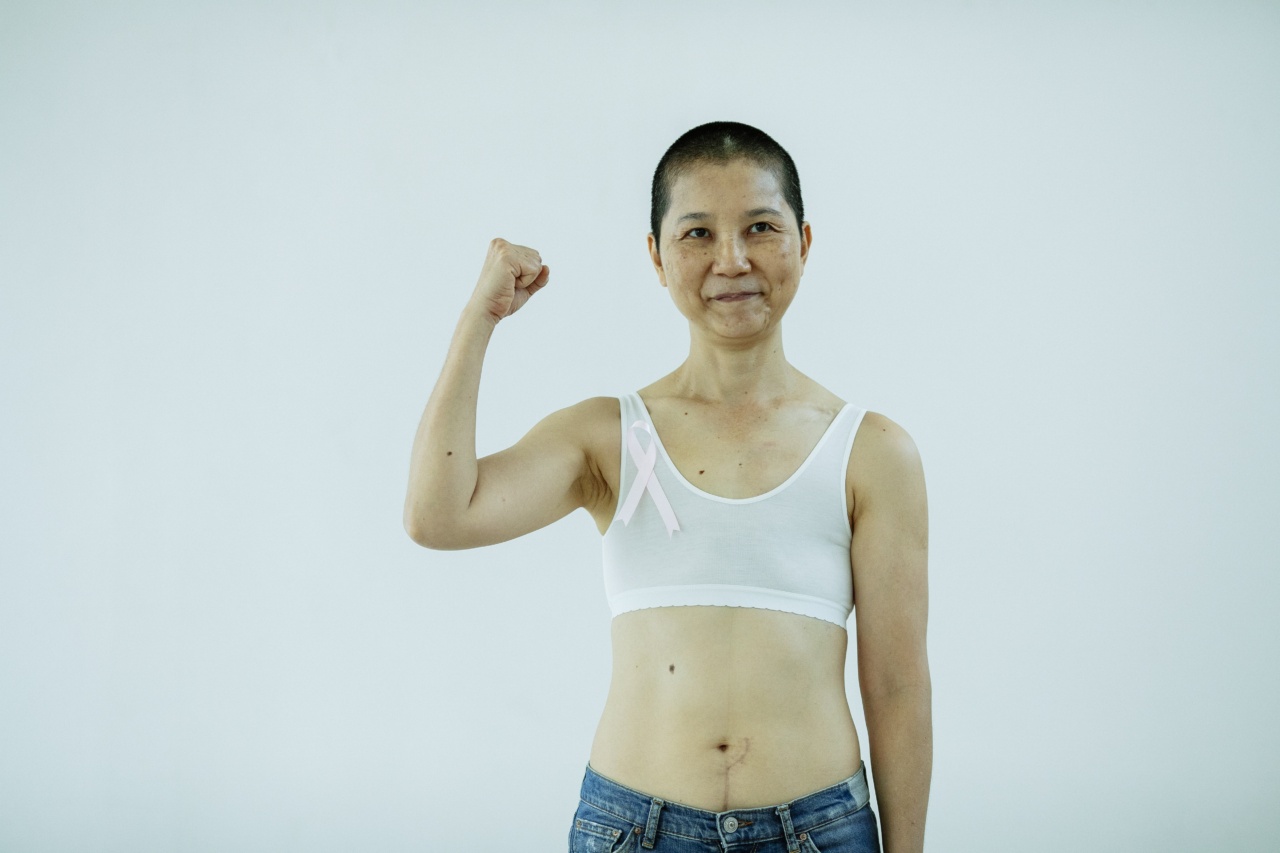When it comes to preventing and fighting cancer, adopting healthy habits is crucial.
While there are numerous lifestyle changes that can contribute to reducing the risk of developing cancer, there is one particular habit that holds immense power in the battle against this disease. This habit, when incorporated into daily life, can make a significant difference in preventing cancer and even aiding in the treatment and recovery process. So, what is this powerful habit? Let’s explore.
The Habit of Regular Exercise
Exercise has long been hailed as a crucial component of a healthy lifestyle. Its benefits go far beyond weight management and cardiovascular health.
Engaging in regular physical activity has been linked to a reduced risk of developing various types of cancer, including breast, colon, and lung cancer. The connection between exercise and cancer prevention lies in its ability to regulate hormones, strengthen the immune system, improve digestion, and enhance overall well-being.
Several studies have highlighted the impact of exercise on cancer prevention. Research shows that physically active individuals have a lower risk of developing certain cancers compared to those with sedentary lifestyles.
The American Cancer Society recommends at least 150 minutes of moderate-intensity exercise or 75 minutes of vigorous exercise per week to reduce the risk of cancer.
The Role of Exercise in Cancer Treatment and Recovery
Not only does exercise play a significant role in cancer prevention, but it also holds immense power in cancer treatment and recovery. When a person is diagnosed with cancer, undergoing treatment becomes a crucial part of their journey.
However, the treatments like chemotherapy and radiation therapy can cause physical and mental side effects, impacting the quality of life drastically.
Incorporating regular exercise into the treatment plan can help alleviate some of these side effects. Exercise has been found to reduce fatigue, improve mood, alleviate pain, boost immune function, and increase overall energy levels in cancer patients.
Additionally, physical activity can aid in preserving muscle mass, improving cardiovascular health, and reducing the risk of secondary health issues that may arise during the treatment phase.
Developing an Exercise Routine
Now that we are aware of the crucial role exercise plays in preventing, treating, and recovering from cancer, it’s essential to understand how to develop an exercise routine that suits individual needs and abilities.
1. Consult a Healthcare Professional: Before starting any exercise routine, it is important to consult with a healthcare professional, especially for individuals undergoing cancer treatment.
They can provide personalized recommendations based on specific needs and medical conditions.
2. Start Slowly: For beginners, it’s best to start with low-impact exercises such as walking, swimming, or cycling. Gradually increase the intensity and duration as fitness levels improve.
3. Find an Enjoyable Activity: Choose an exercise that brings joy and motivation. Whether it’s dancing, playing a sport, or joining a group fitness class, finding an enjoyable activity makes sticking to the routine easier.
4. Mix Up the Routine: Incorporate a variety of exercises to engage different muscle groups and prevent boredom. This can include aerobic exercises, strength training, flexibility exercises, and balance training.
5. Listen to the Body: Pay attention to the body’s signals and adjust the intensity or duration of the exercise accordingly. It’s important to respect one’s own limits and avoid overexertion.
6. Stay Consistent: Consistency is key when it comes to reaping the benefits of regular exercise. Aim for at least 3-4 days of exercise per week and gradually increase the duration and intensity over time.
Other Healthy Habits to Complement Exercise
While exercise plays a pivotal role in fighting cancer, it is important to note that it should be accompanied by other healthy habits for optimal results. Here are a few additional habits that can enhance the cancer-fighting power of exercise:.
1. Maintaining a Nutritious Diet
A well-balanced diet rich in fruits, vegetables, whole grains, and lean proteins is essential in preventing cancer. Antioxidants and phytochemicals found in plant-based foods have been shown to have cancer-fighting properties.
Limiting processed foods, sugary snacks, and red meat can further reduce the risk of cancer.
2. Avoiding Tobacco and Alcohol
Avoiding tobacco in all forms, including cigarettes and smokeless tobacco, is vital in preventing multiple types of cancer, such as lung, mouth, and throat cancer.
Additionally, excessive alcohol consumption has been linked to various cancers, including liver, breast, and colorectal cancer. Limiting alcohol intake is crucial for overall health and cancer prevention.
3. Prioritizing Restful Sleep
Getting an adequate amount of quality sleep supports the body’s overall health and immune function. Sleep deprivation has been linked to an increased risk of several types of cancer.
Aim for 7-8 hours of uninterrupted sleep each night to promote optimal well-being.
4. Managing Stress
Chronic stress can weaken the immune system and contribute to the development and progression of cancer.
Engaging in stress-reducing activities such as meditation, yoga, deep breathing exercises, and hobbies can promote relaxation and overall well-being.
5. Regular Screenings and Check-ups
While adopting healthy habits is crucial, it is equally important to undergo regular screenings and check-ups as recommended by healthcare professionals. Early detection of cancer greatly increases the chances of successful treatment and recovery.
The Power of One Habit
In conclusion, the power of one habit cannot be underestimated when it comes to fighting cancer. Regular exercise, as the habit in focus, holds immense potential in preventing cancer, supporting treatment, and aiding in recovery.
By incorporating exercise into our daily routines, we can strengthen our immune systems, regulate hormones, improve overall well-being, and reduce the risk of developing various types of cancer.
Remember, adopting a holistic approach that includes exercise along with other healthy habits such as maintaining a nutritious diet, avoiding tobacco and alcohol, prioritizing sleep, managing stress, and regular screenings can significantly enhance our body’s ability to fight cancer.































